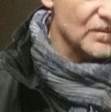Fabrizio Ulivieri's Blog, page 48
June 27, 2023
Lillà - una poesia di Salomėja Nėris
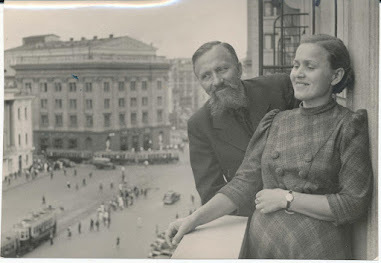
Traduciamo un'altra poesia di Salomėja Nėris, con ogni probabilità l'autore lituano che meglio incarna lo spirito della Lituania, con l'alternarsi della vita scandita dai ritmi vigorosi della natura e il continuo tema della morte che in Salomėja ricorre in modo ossessivo e che giovane la strapperà alla vita, come, per tutta la vita, aveva presentito e atteso.
Io ancora non ero
E i lillà fiorivano -
E non ci sarò più quando
di nuovo fioriranno - crudeli.
E cadranno le foglie
per il sole e il vento
come manciate di terra
a seppellire - il cuore.
Manęs dar nebuvo, –
Alyvos žydėjo – –
Manęs nebebus jau, –
Jos vėlei žydės. –
Ir kris jų lapeliai
Nuo saulės ir vėjo –
Kaip smėlio saujelės –
Ant mano širdies – –

June 26, 2023
"Il Rosario" di Math Cassidy
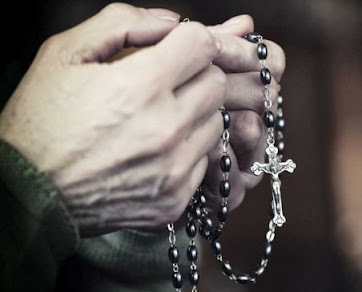
Chi desiderasse leggere il testo lo può trovare QUI.
Il rosario èl'arma piú potente contro i nemici della fede. Fare appello al rosario,cercare in esso la forza, da parte di singolo individuo è connettersi direttamente al cielo perché il rosario è di origine divina, portatodalla Madonna a San Domenico di Guzmán. Ora (all’epoca dei fatti del testo di Math Cassidy) come allora (all'epoca di Guzmán) il rosario sarà usato per combattere chi vuole distruggerela fede cristiana i valori cristiani, usando lo stesso strumento che è statousato nella battaglia di Vienna e di Lepanto contro i turchi (per citare solodue esempi).
Il rosario neltesto di Cassidy è il simbolo della battaglia indivuale, per la resistenzadell’uomo, come individuo, che si trova in una situazione di completasolitudine in un momento in cui il mondo impazzisce e segrega l’uomo, la pandemiacon tutte le sue assurde restrizioni e limitazioni della libertà individuale.L’imperativo categorico di questo uomo diviene: RESISTERE e combattere con quelloche ha a disposizione.
Nella suacompleta solitudine, in un paese straniero, non può unirsi in forme di lotta politicacomunitaria, in associazione con altre persone. E sceglie la via del sentierointeriore.
Quindi si rivolgealla vita spirituale interiore, che è la prosecuzione della via del cielonell’uomo, che è la catena del rosario che da una parte è terrena e dall’altraè del cielo.
Questa arma,perché è un’arma, lo guida nella sua resistenza, verso un mondo soprannaturaledi cui fino ad allora non aveva avuto sentore.
E lo scoprirequesto mondo soprannaturale lo fa credere fermamente nell’esistenza di questomondo soprannaturale e rinforza la sua determinazione a proseguire lungo questastrada.
La strada cheporta alla città di Dio, che vive mischiata alla città del saeculum, che sirivela nelle piccole e grandi cose, attraverso un’azione continua e incessante,come una sorgente di acqua viva che mai cessa di sgorgare [1].
Si ntrova così inconnessione con queste forze portentose e soprannaturali che gli si rivelanoapertamente.
E alla fineaspetta il compimento definitivo e conclusivo che le forze hanno promesso damolto tempo a questo mondo ormai vicino all’implosione, secondo le profezie.
-----------------------------
[1] Quocirca cuivis iam non difficulter occurritutroque coniuncto effici beatitudinem, quam recto proposito intellectualisnatura desiderat, hoc est, ut et bono incommutabili, quod Deus est, sine ullamolestia perfruatur et in eo se in aeternum esse mansurum nec ulla dubitationecunctetur nec ullo errore fallatur. “E’ evidente a ognuno che la naturaintelletuale può raggiungere la felicità che desidera in entrambi i casi, cioè goderedel bene immutabile che è Dio senza inquietudine e permanere in quello statoeterno non mosso da dubbio alcuno e senza essere ingannato da qualsivoglia errore.”(Sant’AgostinoDe Civitate Dei, XI, 13)
Follow me on Substack
June 20, 2023
Piccolo saggio di vita quotidiana - perdere la memoria
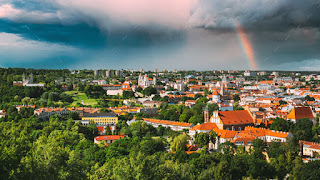
In questo testo, che fa parte di "Essere mio padre" che si trova in making già in https://www.academia.edu/, Silvia, il personaggio principale, rimane terrorizzata dalla paura di aver perso la memoria del padre morto, all'alba del giorno che deve lasciare Vilnius, dove si era recata per visitare la tomba del padre morto, e prendere un volo per l'Italia.
Era la notte prima del volo. E Silvia si svegliò. Ed era la prima volta che a Vilnius si svegliava la notte. Tutte le notti precedenti aveva dormito senza mai interrompere il sonno.
Ma non questa notte.
Si svegliò con l’assillo che non ricordava suo padre.
E i pensieri erano cupi e l’incubo di partire ingrossava il male.
Dopo la sua sua morte aveva inseguito solo un’ ombra, uno spirito, che quasi non aveva faccia.
Dio mio, disse, non ricordo il tuo volto babbo...
Esisti nei miei pensieri, esisti nel mio corpo ma solo esisti, esisti senza un’immagine.
Perdere la memoria, capì, è un grande nemico del cuore. Come può amare chi non ricorda il volto, il suono della voce, i movimenti del corpo?
Dimenticare cancella tutto dell’altro e lo condanna al silenzio per sempre.
Ed era grata che la morte del padre chiedeva a lei di cercare un’immagine che più non aveva. L’aveva strappata giorno dopo giorno dall’oblìo dell’anima in cui aveva tagliato l’immagine del padre e aveva lasciato un buco profondo, vuoto. Assurdamente vuoto.
Ma è mio padre, disse Silvia a se stessa nel chiarore dell'alba che entrava già dalla finestra prennunciando ormai la partenza che la inquietava, come posso averlo dimenticato per così tanto tempo?
Posso sentire cose su di lui, anche se non ricordo chiaramente. Continuarono i suoi pensieri. E so che desidera con tutto il cuore che non lo dimentichi ora in morte dopo che l'ho già fatto in vita.
Io sono della stessa carne e sangue di lui. Come posso tradire ciò che io sono in virtù di lui?
E quel partire aumentava il senso del tradire. Ma che poteva fare? Come avrebbe potuto rimanere lì? A custodire le forze apparentemente inattive che dormivano e attendevano il risveglio?
Erano pensieri tetri che il rompere della luce nella stanza cominciava per fortuna a stemperare.
Capì che non era cosa leggera lasciare Vilnius, un posto che le pareva di conoscere da anni.
In quei giorni aveva recuperato i contorni di un viso dolce e bello, che le parve d’un tratto di ricordare bene. Ma il colore dei suoi occhi, la piega della sua guancia, ancora indugiavano nella nebbia dell’anima offuscati e distanti. Ed era crudele che ancora non ricordasse quella parte viva che rende ogni uomo diverso da ogni altro. E provava vergogna e rabbia.
Di un tratto la luce che pentrava dalla finestra scomparve e l’aria divenne grigia. Nel giro di pochi minuti cominciò a piovere a dirotto. Durò più o meno trenta minuti. Poi il cielo si aprì e di nuovo apparve il sole.
Silvia sentì sollievo, partire sotto la pioggia sarebbe stato ancora più orribile. E non sarebbe stato un buon segno, pensò.
Il sole le avrebbe dato almeno un po’ di coraggio per prendere quell’aereo che non voleva prendere.
E si ricordò di quella volta che il padre l’aveva chiamata dall’aeroporto di Vilnius, angosciato dalla ennesima partenza che lo faceva soffrire, e lei gli aveva rifiutato una parola di conforto.
E arrossì in volto di rabbia e vergogna di nuovo.
E sentì senza preavviso che ora il ritorno era possibile, che l’amore di Alessandro l’avrebbe confortata, perché Alessandro a differenza di quello che aveva vissuto il padre quel giorno, mortificato della solitudine in cui si era perso all’aeroporto, era al suo fianco e l’accompagnava e non la lasciava. Alessandro era alto era forte e poteva in ogni momento appoggiare la sua testa al suo petto e trovare rifugio e protezione in lui.
Ma allo stesso tempo capì quanto forte dovesse essere stato l’amore del padre per Živilė se a cinquantotto anni aveva lasciato tutto e senza nemmeno un lavoro e uno stipendio si era trasferito a Vilnius, in un paese completamente straniero e freddo. E capì anche quanto forte dovessere essere stato l’amore di Živilė per il padre se lo aveva accettato, lei che aveva la stessa età di Silvia, senza lavoro e senza soldi.
Forse per la prima volta in vita sua guardò al cielo e si fece il segno della croce. Disse: Ave Maria...voleva pregare come il piccolo Marco. Ma non sapeva, non conosceva le parole dell’Ave Maria.
Le imparerò, si disse.
Fuori ora vi era un sole bellissimo e splendente e l’aria era calda ma non afosa. Ed erano solo le cinque del mattino.
E le sembrò che quel sole le dicesse: ora Silvia puoi vivere in pace. Deponi le memorie, lasciale qua. Qualcuno amerà conservarle e tenerle care. Io le illuminerò ogni giorno e le terrò vive, fino al giorno che ritornerai. E quel giorno io te le restituirò e saranno per sempre con te.
E le piacquero le parole del sole. Era un invito. Un invito a tornare presto in quella città, dove il padre era seppellito e dove suo fratello viveva.
Follow me on Substack

June 18, 2023
Is there any place

Is there any place
where the peace
can spare me,
where the relief
will smile at me
and give me the faith
where the unsaid
has no kingdom
has no take?
Is there any place
where to sit down
and breathing
without this heavy
interminable panting,
where a secret pain
is feeding my daysunraveling meand sorry food I bite?
Follow me on Substack

June 17, 2023
Why do I forget the past?
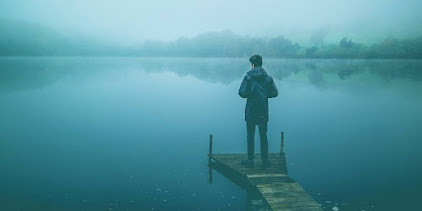
How is it possible that I forgot so much? So much of my past that I do not even remember who was I?
What happened? In which way did I remove almost my entire life? At least 50 years of my life are all but cancelled.
I sense that memory is so strictly bound to the body.
When the body changes, and everyday changes, you lose the memory stringently connected to your body.
Memory is not a matter independent of the body, memory is intertwined with the body.
Memory, Self and body are trinitary. Three in one relation. Their staying connected it's You.
And for too long this Trinity had somehow faded into a mist dense and thick. And only now after I started some periods of fasting, I have been able to gain back some of what I was once, for the mist lifted up.
All in all, I think I am blessed because it simply does not occur to many to have the will to think about their losing the past and their memory and why.
You need components [1] in you which make you able to sense and hear the inner voice of dissatisfaction that brings you to listen, to listen to you and to what is beyond you, rising up your eyes beyond your limited horizon.-------------------------------------------------------
[1] We have discussed this HERE.
Follow me on Substack

June 15, 2023
The Human factor in Machiavelli - Discourses on the First Decade of Titus Livius
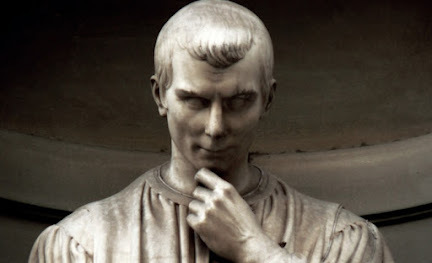
In one of my previous posts I talked about the Human Factor as crucial in every historical event [HERE] Now I am trying to justify my position by finding in the history of political thought the reason for my point of view. Even Machiavelli acknowledges that the human factor is what works in determining the historical occurrences
...to make my meaning plain, and not to part company with the men of whom I have
been speaking, I say, that as, on the one hand, we see Scipio enter Spain, and
by his humane and generous conduct at once secure the good-will of the
province, and the admiration and reverence of its inhabitants, so on the other
hand, we see Hannibal enter Italy, and by methods wholly opposite, to wit, by
violence and rapine, by cruelty and treachery of every kind, effect in that
country the very same results. For all the States of Italy revolted in his
favour, and all the Italian nations ranged themselves on his side.
When we seek to know why this was, several reasons present themselves, the
first being that men so passionately love change, that, commonly speaking,
those who are well off are as eager for it as those who are badly off: for as
already has been said with truth, men are pampered by prosperity, soured by
adversity. This love of change, therefore, makes them open the door to any one
who puts himself at the head of new movements in their country, and if he be a
foreigner they adopt his cause, if a fellow-countryman they gather round him
and become his partisans and supporters; so that whatever methods he may there
use, he will succeed in making great progress. Moreover, men being moved by two
chief passions, love and fear, he who makes himself feared commands with no
less authority than he who makes himself loved; nay, as a rule, is followed and
obeyed more implicitly than the other...[1]
[1] Discourses on the First Decade of Titus Livius Book III Chapter XXI
Follow me on Substack

June 13, 2023
A unique book that I love: The "Vita Nova" by Dante Alighieri
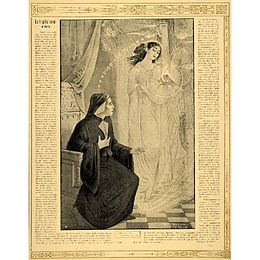 Io spero di dicer di lei quello che mai non fue detto d'alcuna
Io spero di dicer di lei quello che mai non fue detto d'alcunaThe "Vita Nova" by Dante Alighieri is definitely an outdated book for the times we live in.
Outdated mainly for one reason: it speaks of Amore, Love, (with capital letter).
An idealization and interiorization of Love in order to transcend the factual and intrinsic love for a woman (Beatrice) and become the Motor itself of Dante's poetry.
A unique book in its structure: the story of Dante’s love for Beatrice until Beatrice’s death (just perceived in a dreamlike vision). The painful history of Dante's dolor for this unhappy love that in the end becomes the Spirit itself of Dante's poetry. Prose sonnets and canzoni are mixed so as to tell us about a world that unfortunately is centuries away from our raw modernity: a world of Beauty and Love.
A book that should be read by those who are in the process of a trip to Florence. A book to be read before going to that city, a book that will enable people to fully appreciate the scenery, the walls, the streets and the atmosphere that still one breathes in that Love’s atmosphere.
Follow me on Substack

June 11, 2023
About not feeling like an Italian and suffering for Italy - though

If I want to be honest with myself first of all and then with all people that allegedly can be interested in what I say, I never felt too much as being Italian.
When I was young I was many times mistaken for French, Russian, German...rarely people thought I was Italian. And when I said I was Italian they were surprised.
I have never shared qualities that could be connotated as Italian, just because I didn't feel it or a little.
Since I was a lad I had an aversion to food, for loud family reunions, which I tried to avoid with every means, even though now I remember them with nostalgia, above all I miss the familiar faces of many relatives who have disappeared forever from my sight.
I never wished to be like my father. My father was a politician: I was too shy to be speaking in front of a large auditorium.
I remember that many times, between my 30s and 40s, I jokingly said that I was the last of the Etruscans, because people were still telling me that I didn't look like an Italian.
And the Italian mentality was a bit far from my worldview.
If I had an appointment at 5:00 pam at 5:00 I was there.
But the Italy I grew up in was a beautiful Italy. We lived between Italians and we had respect for each other.
When I was little we could sleep without locking the door of our houses.
Until the 80s I could recognize though myself as Italian. But after the 80s Italy radically changed and the distance between me and Italy became unbridgeable.
It is unbelievable how I am suffering for my country now that I am not living there anymore. Now that I know I couldn't live there any longer. Now that I realize what kind of nuts has become my folk. How prone they are to comply and complain about everything. How selfish they are, spoiled by too much well-being, dolce vita.
How they have tarnished their identity, have mixed every kind of race and provenience without reacting to the disappearing of their own identity.
They accept all it is imposed on them without reacting (of course I am talking about the majority, I know that there s a minority which is trying to change the direction).
And I miss the steady brightness of Italian light in summer, the laziness of Italian life which you perfectly breath only during the summer on the beach, which Tim Parks so well depicts in "Cocco Fresco" the opening tail of An Italian Education.
And once again I understand as at the bottom of every human society lies one very important factor: the human factor.The human factor determines what life is and what a society is.And the fabric of the Italian human factor is now very cheap, and without a future, I might add.
Follow me on Substack

June 10, 2023
Fasting to reconnect your "Self" to your body

If there is a discrepancy between yourself and the body, between what you are and what you don't feel you are in your body, then fast, because there is excess to remove in the body.
Through the stratifications of fat, the material that alienates you is deposited in the body. Removing decades of fat you remove the "Self" from its impediments to be reconnected with the body.
Start thinking about fasting and wait for the right moment. The body has a personal indicator. It will let you know the right time to start the fasting.
Fasting is not a mere physical fact. It is changing the spirit of a time that has become stranger to us and that lives in us in order to alienate us to ourselves.
Impossible to fast, without implying a change of the inner spirit.
Those who fasted in the Old Testament did so to invoke great changes in life.
Jesus himself fasted for forty nights and forty days and after fasting he was ready and strong enough to resist the devil and was ripe for his ministry.
Fasting therefore strengthens and doesn't weaken and is the standard-bearer of great changes.
Fasting is not a miracle but it is the encounter of our Self with our body. Overeating alienates the Self from our body.
Layered fats prevent the Self from properly connecting to your body.
Inflammations are clear proof of the conflict between the Self and its own body.
Follow me on Substack

Sul digiuno che riporta il Sé a se stesso

Se vi è una discrepanza fra il tuo Io e il corpo, fra ciò che sei e ciò che non senti di essere nel tuo corpo, allora digiuna, perché nel corpo vi è un eccesso da rimuovere.
Attraverso le stratificazioni di grasso si stratifica il materiale che ti estranea. Rimuovere il grasso di decenni rimuove l'Io dai suoi impedimenti a ricollegarsi al corpo.
Comincia a pensare al digiuno e aspetta il momento giusto. Il corpo possiede un indicatore personale che ti farà avvertire il momento opportuno per riniziare il digiuno.
Digiunare non è un mero fatto fisico. E' cambiare lo spirito di un tempo che si è fatto estraneo e che vive in noi al fine di estraniare noi a noi stessi.
Impossibile digiunare, senza implicare un cambiamento dello spirito interiore.
Chi ha digiunato nell'Antico Testamento lo ha fatto per invocare grandi cambiamenti nella vita.
Gesù stesso digiunò quaranta notti e quaranta giorni e dopo il digiuno fu forte per resistere al diavolo e fu pronto per il suo ministerio.
Il digiuno dunque rafforza e non indebolisce ed è vessillifero di grandi cambiamenti.
Il digiuno non è un miracolo ma è l'incontro del proprio Io con il proprio corpo. L'eccesso di cibo estranea l'Io dal proprio corpo.
I grassi strastificati impediscono all'Io di connettersi in modo adeguato al proprio corpo.
Le infiammazioni sono la prova evidente del dissidio fra l'Io e il proprio corpo.
Follow me on Substack


